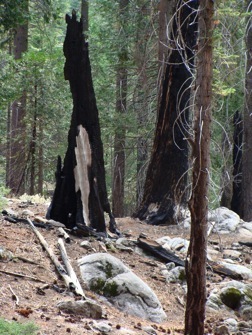Loss, Grief, and Bereavement
|
LOSS
Loss is not limited to a person dying. Loss is more about the emotional experience of missing something or someone. We experience loss everyday. If a routine we are used to following is derailed, we experience the loss of the comfort of the routine and perhaps even lose things that were in the normal routine. We lose time as it passes by each day. Sometimes we experience loss when we adopt new ideas. When plans or hopes for the future are altered, we experience loss of a future hope story. Anytime there is change, there is a possibility that we may experience loss, sadness. We are made to have a full range of feelings. Loss is only one side of our experience of life. The other side is gain. Gain can bring with it joy and celebration. Both loss and gain can be described as change. Any change in life offers an array of experiences including loss and gain. Often the sadness of loss is felt first. Sometimes, joy does not come for years down the road. There is a time for everything--times of loss and times of celebration. We make room for both in our lives. Bereavement is the time period in which a person is grieving the loss of a person. Death and dying continues to be a taboo subject in our culture. We like to entertain the thought that we might live forever. It is hard and painful to acknowledge death when it is around us. Sometimes it is because it reminds us of a death in our own lives. Because it is painful, we want to push it away as quickly as possible to move on. Many companies give zero to two days for bereavement leave. But that is not the end of the bereavement period. In fact, in two days, it has hardly begun. In two days, the bereaved person is most likely still in shock. The truth is, when a person or pet has died, there is a part of us that may always miss them. The grief does not go away. It does change over time. The length of bereavement is different for every person. I believe it is unrealistic to expect bereavement to be abated before three years. What is important is to give the griever allowance that they will be grieving longer than two days, three months, six months, and even a year. In fact holidays and anniversaries can be very difficult for some for years to come. The holidays and anniversaries become a part of our body memory, so that even if we forget the the anniversary, we may find ourselves crying and not understand why.
I Know It’s You--by Noelle Hampton
When the wind shakes the trees, I know it’s you And no one feels the breeze but me, it’s you And when the light points like fingers to earth, it’s you When my poppies bloom first, I know it’s you Heaven couldn’t keep you away from me now I don’t know why, and I don’t know how But I know, I know it’s you Amidst all the chaos there’s a moment of calm Or when a butterfly lands right in your palm When the sun in December burns warmer than Spring Then I know it is you in everything Heaven couldn’t keep you away from me now I don’t know why, and I don’t know how But I know, I know, I know, I know it’s you When I’m alone, I can hear your laughter And in everyone I can see your face From the sky, I can feel, I can feel you watching And in every touch is your embrace Heaven couldn’t keep you away from me now I don’t know why, and I don’t know how But I know, I know it’s you Heaven couldn’t keep you away from me now I don’t know why, and I don’t know how But I know, I know it’s you I know, I know it’s you, I know, I know it’s you |
One Art by Elizabeth Bishop
The art of losing isn't hard to master; so many things seem filled with the intent to be lost that their loss is no disaster. Lose something every day. Accept the fluster of lost door keys, the hour badly spent. The art of losing isn't hard to master. Then practice losing farther, losing faster: places, and names, and where it was you meant to travel. None of these will bring disaster. I lost my mother's watch. And look! my last, or next-to-last, of three loved houses went. The art of losing isn't hard to master. I lost two cities, lovely ones. And, vaster, some realms I owned, two rivers, a continent. I miss them, but it wasn't a disaster. --Even losing you (the joking voice, a gesture I love) I shan't have lied. It's evident the art of losing's not too hard to master though it may look like (Write it!) like disaster. Grief or grieving is the process we go through when we experience a loss. Many people have written about the experience of grief. Elizabeth Kubler-Ross described phases we may go through--denial, anger, depression, bargaining, testing, and acceptance. In my experience, no single person goes through these phases step by step. Rather, they wash over the person in varying orders and lengths of time, sometimes overlapping. No single person experiences grief in the same way. It is different for every person. What does seem to be the common thread is the surprise each person has regarding the power of the emotions as they wash through, sometimes unexpectedly and uncontrollable. For me, this is the hallmark of grief, especially the grief of a lost person. The emotions seem to arise before the person even has a chance to realize they are there. While one may feel perfectly fine and happy one moment, in the next, tears have bubbled up from surface.
The first rose on my rose-tree,
Budded, bloomed, and shattered, During sad days when to me Nothing mattered. Grief of grief has drained me clean; Still it seems a pity No one says, --it must have been Very pretty. -Edna St. Vincent Millay |



